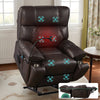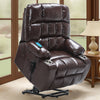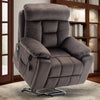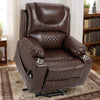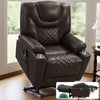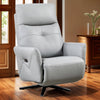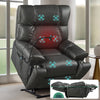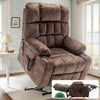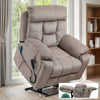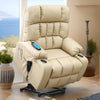Understanding the Unique Needs of Elderly Women
Recognizing the Shifts in Health and Wellness
As women age, their bodies undergo significant changes. Hormonal shifts can lead to bone density loss. This increases the risk of osteoporosis and fractures. Muscle mass may decrease, affecting strength and balance. Cognitive functions might slow down, impacting memory and decision-making.

Vision and hearing may also decline, affecting daily activities. Heart health becomes a bigger concern due to changes in blood pressure. Digestive issues may arise, leading to nutrition challenges. Sleep patterns often change, causing fatigue and mood swings.
Understanding these changes is crucial for proper care. It allows for proactive measures to maintain health and independence. Regular check-ups and screenings become even more important. Adapting lifestyle habits can help manage these shifts effectively.
Balancing Independence with Assistance
Maintaining independence is a key desire for many elderly women. However, safety and well-being must also be considered. The goal is to find a balance between autonomy and necessary support.
Assistive devices can play a crucial role in this balance. Lift chairs and recliners for the elderly offer comfort and aid mobility. They help with sitting and standing, reducing fall risks. These tools promote independence while ensuring safety.
Home modifications can also support this balance. Installing grab bars in bathrooms and improving lighting are simple yet effective changes. Personal emergency response systems provide peace of mind for both seniors and their families.
It's important to involve elderly women in decision-making about their care. This approach respects their autonomy while addressing their needs. Regular assessments can help adjust the level of assistance as needs change.
Best Practices for Supporting Elderly Women
Personalized Care and Companionship
Personalized care is essential for the well-being of elderly women. It involves understanding their unique needs, preferences, and health conditions. This approach ensures that care is tailored to each individual.

Regular health assessments help identify specific care requirements. These may include medication management, mobility assistance, or nutritional support. Care plans should be flexible and adapt as needs change over time.
Companionship is equally important for emotional well-being. Regular social interactions can prevent feelings of loneliness and depression. This can involve family visits, friendships, or professional caregivers. Engaging in hobbies and activities together can boost mood and cognitive function.
Respecting personal choices and maintaining dignity is crucial in care. This includes involving elderly women in decisions about their daily routines and care plans. Encouraging independence where possible promotes self-esteem and life satisfaction.
Leveraging Technology for Health and Safety
Technology offers innovative solutions for supporting elderly women. Smart home devices can enhance safety and independence. Voice-activated systems can control lights, thermostats, and even call for help. These tools make daily tasks easier and provide peace of mind.
Wearable devices monitor vital signs and activity levels. They can alert caregivers to potential health issues or falls. Medication reminders and dispensers help ensure proper dosage and timing. This reduces the risk of missed doses or medication errors.
Telemedicine platforms enable remote health consultations. This is especially valuable for those with mobility issues or living in rural areas. It provides access to healthcare without the need for travel.
Social media and video calling apps help maintain connections with loved ones. They combat social isolation, which is a common issue among the elderly. Online learning platforms offer opportunities for continued education and mental stimulation.
Creating Accessible and Inclusive Environments
Creating accessible environments is crucial for the safety and independence of elderly women. This involves both physical and social considerations. Homes should be adapted to reduce fall risks and improve mobility.
Install handrails on stairs and in bathrooms. Use non-slip flooring materials in high-risk areas. Ensure proper lighting throughout the home, especially in hallways and staircases. Rearrange furniture to create clear pathways for easy navigation.
Consider the height of furniture and fixtures. Lift chairs and recliners for the elderly can greatly improve comfort and independence. They assist with sitting and standing, reducing strain on joints and muscles.
In public spaces, advocate for better accessibility. This includes ramps, elevators, and wide doorways. Clear signage and adequate seating areas are also important. These changes benefit not just the elderly, but people of all ages and abilities.
Inclusive environments also consider social aspects. Community centers should offer programs tailored to elderly interests. Libraries can provide large-print books and audiobooks. Restaurants might consider offering senior-friendly menus and seating options.
Expert Insights on Enhancing Quality of Life for Seniors
Tailored Nutrition and Exercise Regimens
Proper nutrition is vital for the health of elderly women. As metabolism slows, calorie needs change. However, nutrient requirements often increase. A balanced diet rich in vitamins and minerals is essential.

Experts recommend focusing on nutrient-dense foods. These include fruits, vegetables, lean proteins, and whole grains. Adequate calcium and vitamin D intake is crucial for bone health. Omega-3 fatty acids support heart and brain function.
Hydration is often overlooked but is extremely important. Seniors may have a reduced sense of thirst. Encourage regular fluid intake throughout the day. Water, herbal teas, and fruit-infused water are good options.
Exercise is equally important for maintaining health and independence. Low-impact activities like walking, swimming, or chair exercises are beneficial. These help maintain muscle strength, balance, and flexibility. They also boost mood and cognitive function.
Tailored exercise programs should consider individual abilities and health conditions. Working with a physical therapist can ensure safe and effective routines. Even small amounts of daily movement can have significant benefits.
Importance of Social Networks and Support Systems
Strong social connections are crucial for the well-being of elderly women. Social isolation can lead to depression, cognitive decline, and health issues. Maintaining and building relationships is key to a fulfilling life.
Family connections provide emotional support and practical help. Regular visits, calls, or video chats can make a big difference. Encouraging intergenerational activities can be especially rewarding. This might include storytelling, crafts, or cooking together.
Friendships with peers are also important. They offer companionship and shared experiences. Senior centers and community groups provide opportunities for socializing. Book clubs, craft groups, or exercise classes can foster new friendships.
Volunteer work can give a sense of purpose and community involvement. It's a chance to use life skills and experiences to help others. This can boost self-esteem and provide social interaction.
Support groups for specific health conditions can be valuable. They offer understanding, advice, and emotional support. Online communities can connect seniors with others facing similar challenges.
Navigating the Healthcare System for Optimal Care
Navigating the healthcare system can be challenging for elderly women. Understanding insurance coverage, finding specialists, and coordinating care can be overwhelming. However, proper healthcare management is crucial for maintaining health and independence.
Regular check-ups and preventive screenings are essential. These can catch potential issues early. Work with a primary care physician to coordinate overall health care. They can refer to specialists when needed and manage medications.
Keep a detailed health record. Include medications, allergies, and past procedures. This helps avoid duplications and ensures all healthcare providers have current information. Consider using digital health apps to track this information.
Understand insurance coverage and benefits. Medicare and supplemental insurance can be complex. Seek help from insurance advisors or senior advocacy groups if needed. They can explain options and help maximize benefits.
Don't hesitate to ask questions during medical appointments. Bring a family member or friend for support if needed. They can help remember information and ask important questions. Prepare a list of concerns or questions before the appointment.
Consider working with a geriatric care manager. They can coordinate care, navigate insurance, and advocate for the best possible care. This can be especially helpful for those with complex health needs or limited family support.








